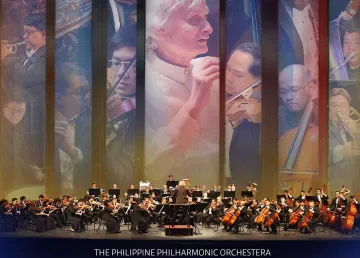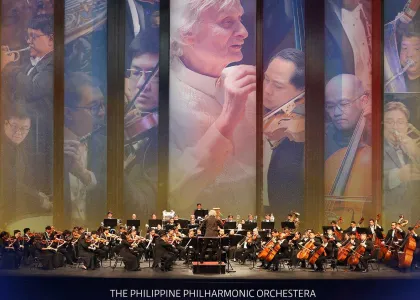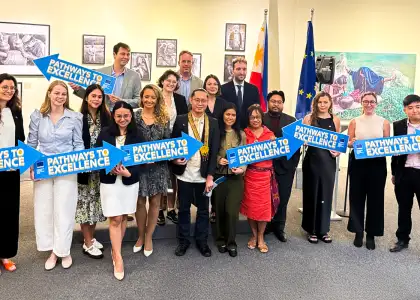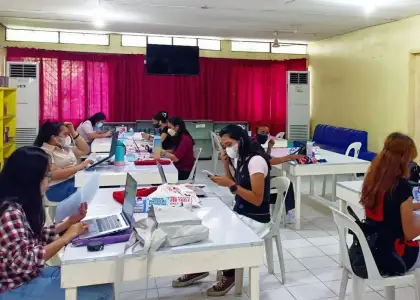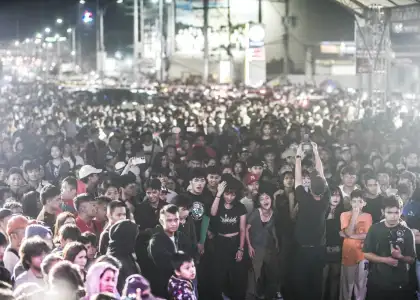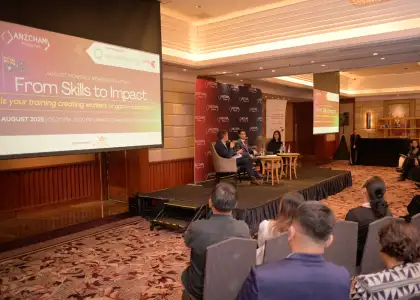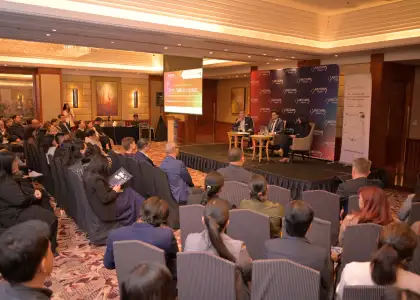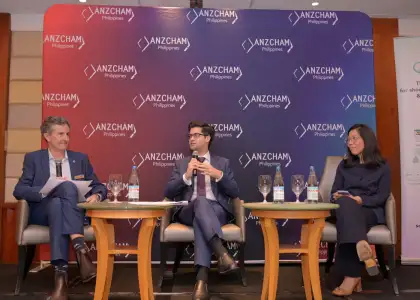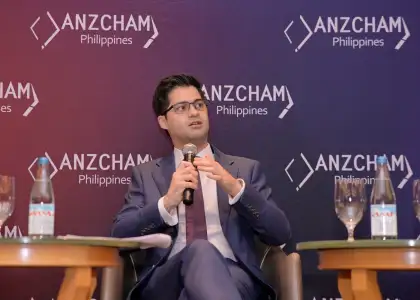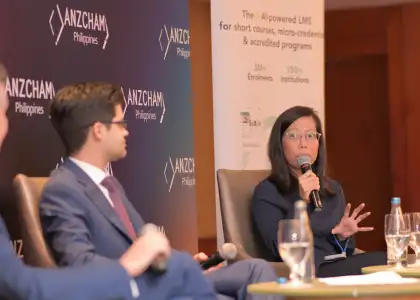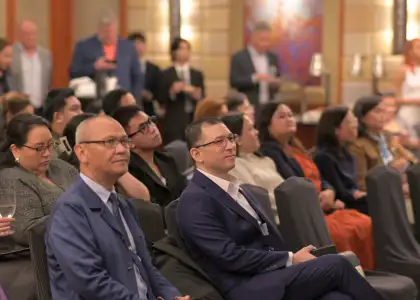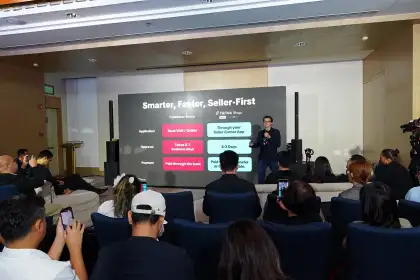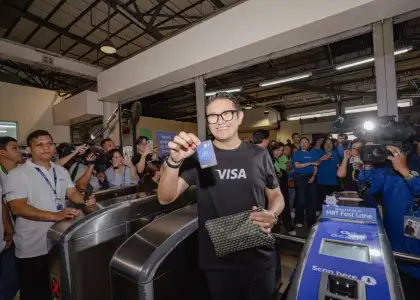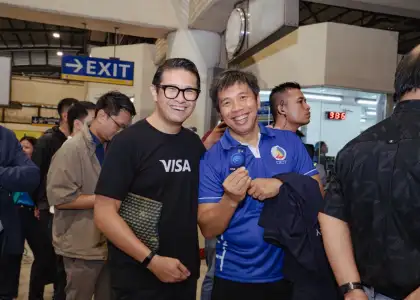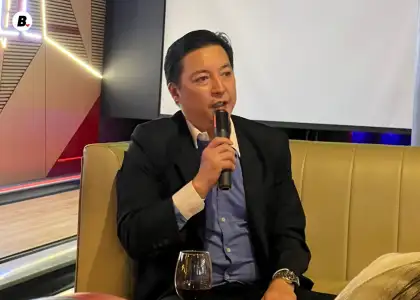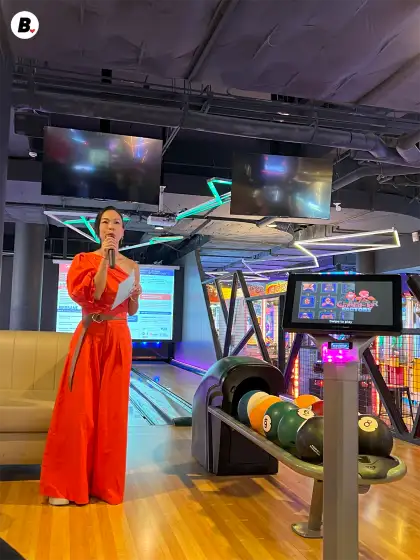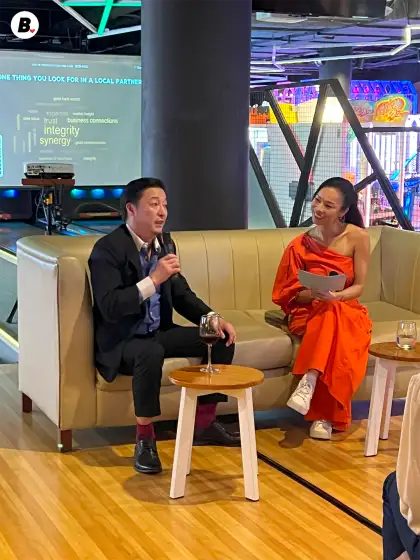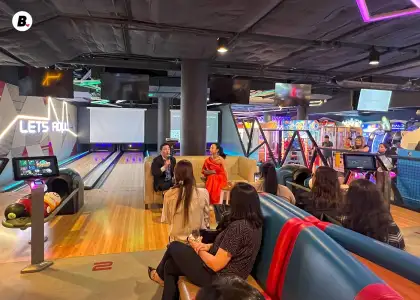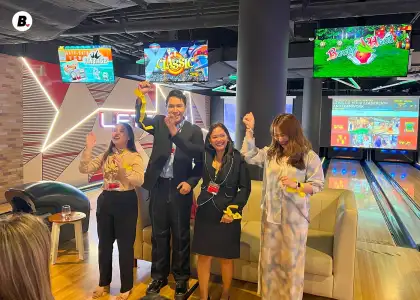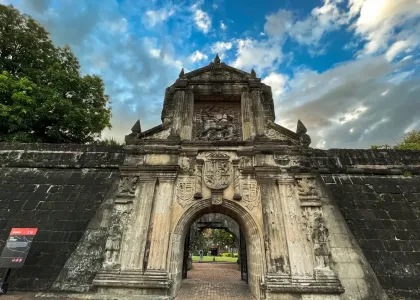Role of People-to-People Connections in NZ-Philippines Relations
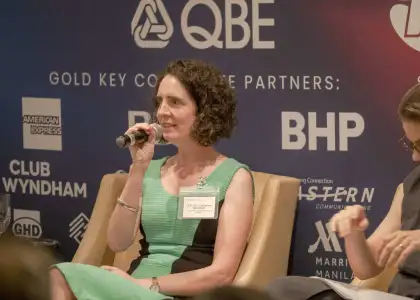
An hour before the event was set to start at 6 PM, the ballroom at Shangri-La Makati was already buzzing with energy at the Australian-New Zealand Chamber of Commerce Philippines (ANZCHAM)'s August Edition of their Monthly Members Meeting.
Quite a lot of ANZCHAM members had already arrived, eager to meet with their fellows and start conversations with new faces. They had begun serving food and drinks, and the wines, in particular, were all from New Zealand — sparking a running debate about which is better: Australian wine or New Zealand wine? We'll leave you to decide. But after a good hour or two spent mingling, sampling food, and discussion in anticipation of the upcoming panel, it was time to finally kick off the aforementioned talk.
While trade and economic strategies were at the forefront of the discussion at ANZCHAM's “New Zealand’s Economic Strategy: State of the Economy, Building a Sustainable Future Together” event, the gathering also highlighted a crucial yet sometimes overlooked aspect of bilateral ties: the power of people-to-people connections.
Her Excellency Dr. Catherine McIntosh, the New Zealand Ambassador to the Philippines, and Cecilia Shand, New Zealand Trade Commissioner to Indonesia and the Philippines, shed light on the multifaceted relationship between New Zealand and the Philippines.
Dr. McIntosh set the tone early in her address, emphasizing the warm relationship between the two countries, which is “underpinned by people connections.”
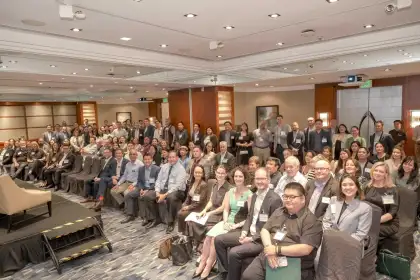
This echoes a growing recognition in diplomatic circles that cultural understanding and connections based on a more personal approach can pave the way for stronger ties – economically and politically. Her Excellency’s own efforts to connect with the Filipino people were evident as she greeted the audience in Tagalog, sharing that she underwent three months of Filipino language training before taking up her post in Manila.
“Magandang gabi po sa inyong lahat. Nagpapasalamat po ako sa mainit ninyong pagtanggap (Good evening to you all. I’m very grateful for your warm welcome),” Ambassador McIntosh said, earning much applause from the audience.
Her commitment to cultural understanding goes beyond mere courtesy, as it represents a strategic approach to diplomacy – after all, speaking to people in their own language would go far in earning their trust. It’s a commendable act, especially considering Tagalog isn’t included in the 20 most spoken languages in the world.
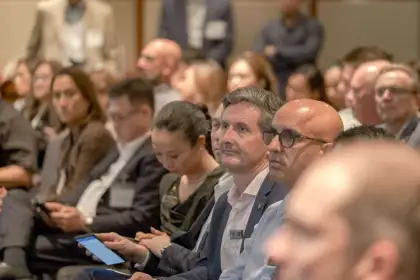
Growing Filipino Community in New Zealand
One of the most striking statistics shared during the event was that the Philippines was New Zealand’s second-largest source of migrants in January 2024, surpassing even China. The 100,000-strong Filipino community in New Zealand is continuing to grow – beyond numbers on paper, the demographic shift is representative of a cultural infusion. If this event was indicative of anything, it’s that the bridges between our two nations are getting stronger and both countries are eager to take part in making that happen.
Ambassador McIntosh also highlighted that the Filipino community is making “a positive contribution to New Zealand society and all parts of our economy.” This contribution spans various sectors, from healthcare to agriculture. One example came from an audience member who shared her experience of bringing hundreds of Filipinos into New Zealand, specifically the dairy farming industry. She emphasized their fantastic work ethic and how well they fit into the culture, highlighting the mutual benefits of this migration.
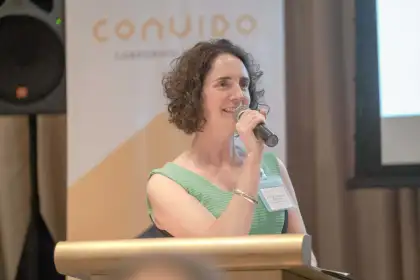
Perhaps one of the most tangible signs of the integration and influence of Filipinos into New Zealand is their representation in parliament.
Her Excellency proudly noted that New Zealand has two Filipino members of parliament. One of them, Paulo Garcia, even accompanied Prime Minister Christopher Luxon on his recent visit to Manila. This level of political representation not only gives voice to migrants from the Philippines, but also strengthens the ties between the two countries at a governmental level. Plus, it shows how much people in New Zealand value diversity and inclusion.
Shared Cultural Values
One of the fascinating insights shared during the event was the cultural similarity between Māori and Filipino traditions, particularly in their respect for elders. Ambassador McIntosh explained that in Māori culture, Kaumātua (elders) play a crucial role in society, tasked with passing down knowledge and protocols to younger generations. This mirrors the Filipino tradition of "Mano po," where young people ask for the blessing of their elders through the physical act of requesting an elder’s hand and gently placing it against their forehead.
The ambassador also revealed the spiritual connections between our people, recounting a dinner she and her husband hosted for the New Zealand Māori Archbishop and the Philippines Episcopalian Prime Bishop. She eagerly shared how the two had a surprising amount of common ground. Spirituality, for a lot of people, is as personal as it gets, and finding connection in this thread is important for a religious country like the Philippines, and New Zealand which values their spiritual roots as well. It goes beyond diplomacy, once again emphasizing the importance of people-to-people relations.
Building Bridges Through Knowledge
Education emerged as a key area of cooperation and exchange between New Zealand and the Philippines. Cecilia Shand, the New Zealand Trade Commissioner, revealed that the Philippines ranks as the eighth-largest source country for international students in New Zealand. This educational exchange not only contributes to New Zealand's economy but also creates lasting personal and professional connections that benefit both countries in the long term.
Moreover, New Zealand is actively investing in Filipino talent through various scholarship programs. Maricon Popanes-Lim, Country Manager for New Zealand Trade and Enterprise in the Philippines, highlighted initiatives like the Manaaki scholarship program, which sends Filipino scholars to New Zealand for training in sectors such as renewable energy, geothermal technology, agriculture, and defense and security.
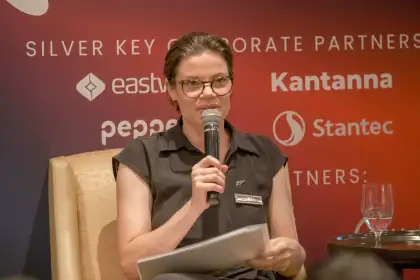
Tourism is a Two-Way Street
Tourism emerged as another significant area for strengthening people-to-people connections. An audience member, herself a product of New Zealand's scholarship program, raised the potential for increased tourism exchanges between the two countries. She highlighted New Zealand's success in showcasing its Māori culture through tourism and suggested that the Philippines could learn from this approach in promoting its own cultural heritage. The discussion also touched on New Zealand's sustainable approach to tourism, which could serve as a model for the Philippines as it seeks to protect its natural beauty while promoting tourism.
Business Beyond Numbers
While much of the discussion focused on cultural and educational exchanges, the event also highlighted how people-to-people connections are vital in the business world. Cecilia noted that New Zealand is actively working to increase the number of New Zealand companies outsourcing to the Philippines. Currently, they are proactively working with about 20 companies, but there's significant room for growth, especially compared to the hundreds of Australian companies already leveraging Filipino talent.
A compelling example of successful business collaboration came from the story of Building Engineering and Design Co. (BEDC), a New Zealand company that set up an office in the Philippines in 2020 and now employs over 350 Filipino civil engineers. This case study not only demonstrates the business opportunities available but also highlights how such ventures create meaningful employment and skill development opportunities for Filipinos.
“BEDC set up an office here in the Philippines in 2020 and now employs over 350 [Filipino] civil engineers. When the CEO was asked why they did not hire this expertise in New Zealand, the answer was really simple: they couldn’t. They couldn’t have done and achieved the growth that they had without the Philippines,” one audience member shared.
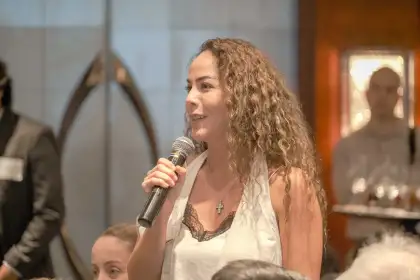
Challenges and Opportunities
Despite the many positive aspects of the New Zealand-Philippines relationship, the event also touched on some challenges. The need for more direct flights between the two countries was mentioned as a barrier to increased tourism and business exchanges. Additionally, while New Zealand's commitment to sustainability and renewable energy was praised, there was recognition that the Philippines faces different challenges due to its larger population and developmental needs.
However, these challenges were framed as opportunities for collaboration. New Zealand's expertise in areas like geothermal energy and sustainable farming practices could be valuable as the Philippines seeks to address its own environmental and developmental challenges. The key, as emphasized by both the speakers and audience members, is to approach these issues with a mutual learning mindset.
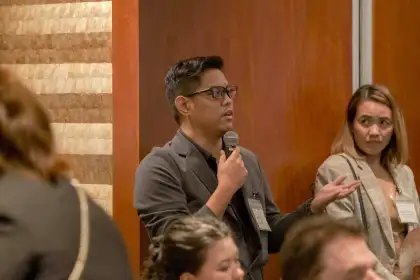
What is the Most Important Thing in the World?
As the panel discussion drew to a close, it became clear that the strength of the New Zealand-Philippines relationship lies not just in trade figures or formal agreements, but in the myriad personal connections between the two countries. From Filipino dairy workers in New Zealand to Kiwi businesses employing Filipino engineers, from students studying abroad to tourists exploring each other's natural wonders, these individual stories collectively weave a tapestry of bilateral relations that is rich, complex, and deeply human.
Before the event was over, however, everyone wasted no time and immediately put to work what they learned from the speakers. With ANZCHAM's open and engaging community, it was easy for old and new members alike to interact and connect — talking about business, personal lives, and everything in between. As wines from New Zealand were freely served, conversations flowed just as smoothly and it was just as easy for everyone to say, "See you again at the next event!"
The ANZCHAM event served as a reminder that in an increasingly interconnected world, the most enduring international relationships are those built on a foundation of mutual understanding, respect, and genuine human connection.
In the words of a Māori proverb shared during the event: "He aha te mea nui o te ao? He tangata, he tangata, he tangata(What is the most important thing in the world? It is people, it is people, it is people)."
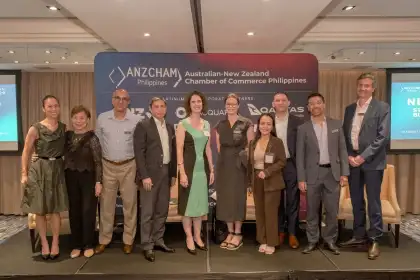
“New Zealand’s Economic Strategy: State of the Economy, Building a Sustainable Future Together” was organized by the Australian-New Zealand Chamber of Commerce Philippines (ANZCHAM), co-presented with Convido Corporate Apartments. Special thanks to event partners Coversure and WorkQC+. For more information on how to become an ANZCHAM member, visit their website.
Their next event this Sept. 10 is on Artificial Intelligence, featuring Sherwin Pelayo, Executive Director of Analytics and AI Association of the Philippines (AAP), Kapil Raheja, Vice President at Hinduja Global Solutions (HGS), and Shobhit Srivastava, Country Team Lead at LinkedIn. Register and buy your ticket here.
Check out future ANZCHAM events here and follow them on LinkedIn, Facebook, and Instagram.
Get the latest curated content with The Beat Asia's newsletters. Sign up now for a weekly dose of the best stories, events, and deals delivered straight to your inbox. Don't miss out! Click here to subscribe.


